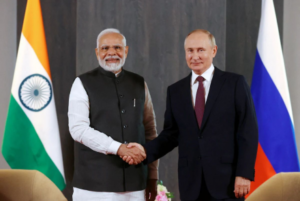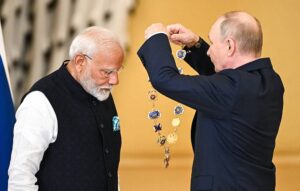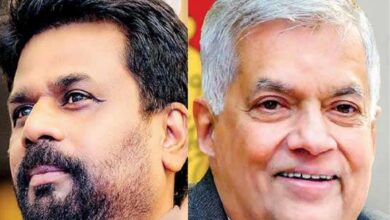Afghan common ground in India-Russia relations

BY KABIR TANEJA
Prime Minister Narendra Modi’s visit to Russia for a summit-level meeting with President Vladimir Putin caught global attention. For New Delhi, despite the war in Ukraine and tensions between Washington and Moscow, its relationship with Russia remains an important incubator for cooperating against prevailing security challenges in the region, such as Afghanistan.
Modi’s visit to Moscow has come at an interesting juncture for this time-tested bilateral relationship. India decided that it would not attend this year’s Shanghai Cooperation Organization summit in Kazakhstan at the leadership level, prioritising the bilateral visit instead. This gave an opportunity for both parties to resume their strategic dialogue after a gap of some years. Both sides highlighted countering terrorism as a major deliverable.
However, despite the common security interests, specifically on terrorism, there are geopolitical crevasses today that will require deft diplomacy notwithstanding the historicity of ties. Both Russia and India attended, and supported, the recent United Nations (UN)-backed meet on Afghanistan in Qatar. Both have direct engagements with the Taliban, albeit Moscow has developed much deeper and quasi-formalised ties, with recent reports also suggesting the Kremlin is preparing to de-list the Taliban as a proscribed terror group.
Security stakes for Russia over the past two months have starkly increased around the Afghan issue. The March terror attack in Moscow claimed by Islamic State Khorasan (ISKP) which operates from the Afghanistan-Pakistan geography killed over 140 people. More recently, a similar attack took place in the country’s Dagestan region, while previously two Russian diplomats were killed in an ISKP attack in Kabul in 2022.
With India and Russia having a common interest in Afghanistan’s stability, the ensuing big power competition, which is pushing Moscow into a tight Chinese economic embrace, is increasingly turning out to be a challenge. But in Afghanistan, this new geopolitical concern is not as black and white as some make it to be. While true that both Moscow and Beijing now increasingly align in multilateral forums to scuttle western power and interests, in Afghanistan, they seem to have a distant and at times divergent approach specifically when seen from the point of view of influence in Central and South Asia.

Pakistan’s current push to address its own crisis with the Taliban may shape at least some of these intricacies as far as China and Russia are concerned. Many in the Pakistani media have alluded that the main pressure for them to urgently address issues with the Taliban and the Tehrik-e-Taliban Pakistan (TTP) is coming from Beijing. However, to even try and effectively do this, Rawalpindi has raised the alarm in Washington instead. The visit by United States (US) CENTCOM chief General Michael Kurilla to the country’s restive Khyber Pakhtunkhwa Province and the contested Durand Line in May marks a subtle revisit of geopolitical designs of the past three decades where both China and Russia benefited from US-provided military and financial assistance for countering terrorism. This would be unpalatable today.
Russia is also trying its own approaches, in part due to the Af-Pak dichotomy. Its recent invitation for Pakistan to join the International North-South Transport Corridor (INSTC) is a case in point where Putin is trying to hit multiple birds with one stone. That is, gain more bilateral stakes in Pakistan, and perhaps even make its displeasure to India known for increasingly becoming part of US-partnered designs, from Quad in the Indo-Pacific to the India-Middle East-Europe Economic Corridor. Simultaneously, Moscow would like to maintain an independent presence in South and Central Asia and ideally avoid being subservient to Chinese agendas.

This is an opportunity for India. While debates are ripe on Russia’s slip towards China, with good reason, Afghanistan provides ample space for New Delhi to work with Russia and strengthen interests in addressing common security issues in this geography. Even as most neighbours today have few overlapping strategic interests, the likes of India, Iran, and Russia, have a deep history of cooperation which includes outreach to multiple stakeholders across political and ethnic divides between Kabul and Kandahar.
Prioritised leadership-level attention to Afghanistan could go a long way in revisiting at least some of the common grounds on security, development, and economic stability of the once again embattled State. While Pakistan’s completely failed policy in Afghanistan over the decades has come home to roost, the implications of the same could go well beyond the region, as demonstrated by ISKP, and by way of other terror groups, including Al Qaeda, continuing to survive in the country.
Kabir Taneja is a Fellow with Strategic Studies programme. His research focuses on Indias relations with West Asia specifically looking at the domestic political dynamics terrorism non-state militant actors and the general security paradigm of the region.




